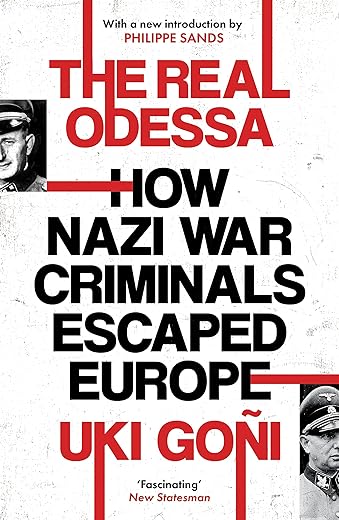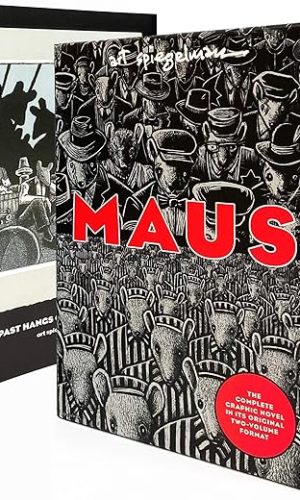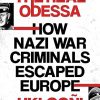The Real Odessa: How Nazi War Criminals Escaped Europe
£11.30£14.20 (-20%)
‘Powerful and gripping… Goñi [is] impressively relentless: leaving no discoverable stone unturned’ Philippe Sands, author of The Ratline
As Russian forces closed in on Berlin, and Hitler’s regime drew to a close, many Nazi officials began to organize their escape from Germany. Thanks to an international effort – which included the enthusiastic support of the Vatican and President Juan Perón – they were able to evade justice, and found refuge in Argentina.
In this startling, meticulously researched account, acclaimed author Uki Goñi unravels the complex network that protected these fugitives, revealing the ‘ratline’ that allowed Adolf Eichmann – the architect of the ‘Final Solution’ – Josef Mengele, Erich Priebke, and many more to escape Europe. Both compelling and revelatory, this remarkable investigation sheds vital light on a disquieting period in Europe’s history.
This revised edition includes a new foreword by the author, new interviews, and a comprehensive list of the Nazi and European World War Two criminals who fled to Argentina.
Read more
Additional information
| Publisher | Granta Books (3 Nov. 2022) |
|---|---|
| Language | English |
| Paperback | 448 pages |
| ISBN-10 | 1783789255 |
| ISBN-13 | 978-1783789252 |
| Dimensions | 12.7 x 3.18 x 19.05 cm |









by H J COLLINGS
Very intersting history, lots of initial background information, but is a good read and a must for anyone with interest in Nazi war criminals post war and why they were treated so well by various bodies despite their crimes.
Explains how so many of them managed not only to first escape, but then move around, often openly, given their notoriety.
by John Fitzpatrick
I decided to read this after it was described as an “excellent book” and referred to as a source in the Philip Kerr novel “A Quiet Flame” featuring his quirky German policeman hero Bernie Gunther. The climax of Kerr’s novel was the “discovery” of a concentration camp in Argentina where Jews had been murdered. Although it was presented as fiction Kerr said rumours had existed during the War of a concentration camp for Jews in Argentina’s remote forests.
I had hoped to find some more information on this in Goñi’s book but there was nothing at all. In fact, his account of how thousands of Nazis and collaborators from occupied countries found a welcome in Argentina is a dull read and consists of descriptions of how bureaucratic procedures were bent or broken to allow these individuals to get out of Europe and across to South America. I quickly grew impatient with the long list of accounts of Nazis getting exit or entry visas by bribing corrupt policemen or diplomats.
As the author is an Argentinean, the reader might have expected some insight into why his country and its dictator, Juan Peron, was so welcoming but we don’t get it. Was it because Argentina was Catholic with close links to the Vatican? Was it because Argentina had a large influential population of German descent? Was it because Peron was a fanatic anti-Semite? Or was the whole thing basically done for money?
The author raises this final point and highlights how bribery was involved at every step and even Jews were admitted to Argentina after paying bribes. He should have followed these points up instead of constantly trying to persuade the reader of the importance of files he claims to have found during six years researching the book.
Turning dusty old files into an interesting read requires more talent than Mr. Goñi has.
by Alain Menez
I received this book well before the talk that Uki Goñi gave in Dublin. Received as good as new. A complete satisfaction for both.
by J. Rumboll
This should be required reading for everyone in Argentina, including the decendents from the Nazis! A good insight into the ‘quality’ of president that unfortunate country was, and is, destined to have. It will never prosper while Peronism rules, or even exists. ‘We cry for you Argentina’!!
by handi
Although it’s obvious that an amazing amount of time effort and years of hard and sometimes dangerous graft has gone into this work, I found it really hard going. There is a lot of needless repetition of information that I thought held up the natural narrative of the important story.
by Bob D
How many links to the past exist with all that gold in the various bank accounts funding other groups causing unrest in the world. Who is now in charge of all those ill gotten gains? Using them to get power.
by Thebrassinator
This is one for anybody with an interest in this subject matter. Detailed and original writing with detailed facts – can be a little hard going in places otherwise I would have awarded 5 stars.
by The Manchurian Candidate
An awesome research coupled with Goni’s excellent writing style. He provides concrete proof on how did the Nazi masterminds and other war criminals manage to flee from postwar justice, known as the Nuremberg trials. A great many of them (not just Germans) found a safe haven, mostly, in Peron’s Argentina. They never got to trial for their hideous crimes, with the exception of Eichmann (who was later taken by the Israeli from Argentina). Mass murderers like Eichmann, who was in charge of the mass extermination of Jews (known as the “Final Solution”) in the extermination camps, Pavelic and his collaborators of the Ustashi genocidal regime (Croatia), got away from the Allied-occupied European countries (Germany, Italy and others) with the ardent support of Spanish and Italian fanatical Catholic prelates and bishops. There is proof that Vatican was aware of this “rescue” operation. Note that Goni’s research is no fiction nor movie, but what really happened.